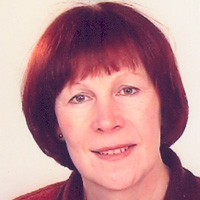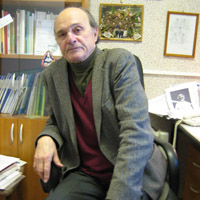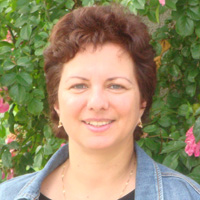the igu commission for environment evolution
The main objects of the Commission.
The main activities of the "Environment Evolution Commission" are focused on the experimental and theoretical studies of the environmental changes and landscapes evolution during the past epochs as well as human impact on land surface under modern environmental conditions and different scenarios of projected future climate changes at key-regions of the Northern and Southern Hemispheres.
An evolution analysis of terrestrial environments (landscape-climatic system) is necessary for understanding contemporary state of this system, estimating its stability and variability under conditions of a complicated interaction between natural trends of environmental evolution and an anthropogenic impact. Thus, a natural trend towards cooling, identified from paleogeographic data, is superimposed upon the process of the man-induces warming. Such a combination of governing factors influencing the landscape-climatic system in opposite directions brings about its diminishing stability.
An evolutionary analysis, in its turn, clearly shows that characteristics times of various landscape components (e.g., relief, vegetation cover, soil, etc.) should be taken into consideration, especially when analysing highly unstable geosystems. Such a “chronospectral” analysis of geosystems is of special importance under conditions of the unprecedented speed of the global warming.
Developing the palaeoanalogue method allow tp improve our ability to evaluate the upcoming environmental changes caused by the man-induced global warming.
The above-mentioned interrelated problems may be considered as the basis of the scientific and coordinating activities of the Commission. As a strategic approach of the Commission in the studies of these problems, we suggest to maintain the research of the LCS evolution during the last 10,000 years in the key-regions where the extreme LCS changes are currently registered or expected (for example, the polar regions, areas of increasing aridity, extratropical monsoon regions, and the mid-latitude areas with the growing frequencies of the climatic extremes).
The general strategy of the Commission
- To concentrate the efforts on the Holocene (the last 10-12 kyr). The investigation of landscape dynamics through this time interval allow us to assess more confidently the position of modern environments in the general evolutionary process. The principal lines of research are: Landscape dynamics; Natural Processes; and Human impact.
- As a first step of investigation was the choice of key-regions both in South and North hemispheres. The key regions meet the following requirements: availability of detailed paleobotanical information (pollen, macrofossil, diatoms, etc); geomorphological data, paleolimnic and paleohydrological materials, dendrochronological records, radiocarbon dates, stable isotope data and the evidence about beginning of human activities. On the base of this records the paleoclimatic reconstructions and paleoenvironmental maps for different time-slices have been compiled.
- A special attention is paid to the last 1000 year period including the Medieval optimum, Little Glacial Age and transitional period to the present days that are characterised by increased anthropogenic impact on biosphere.
The structure of organization.
The Environment Evolution Commission consists of 11 regional working groups. The WGs include specialists in environmental evolution (paleobotanists, paleopedologists, paleoglaciologists, etc.), paleoclimatologists, as well as specialists in numerical modeling. The leaders of WGs are the members of Commission Steering Committee.
-
The chair of the Commission:

Dr. T. Boettger (Germany).
UFZ Helmholtz Centre for Environmental Research,
Department of Catchment Hydrology, Theodor-Lieser-Str. 4, D-06120 Halle.
Phone: +49-345-558-5227;
fax: +49-345-558-5449;
e-mail: tatjana.boettger@ufz.de -
the first chair of the Commission (2004-2012):

Professor Andrei Velichko (Russia)
Institute of Geography Russian Academy of Science.
29 Staromonetny lane, Moscow 119017, Russia.
Phone: +7(495) 238 02 98
Fax: +7(495) 959 00 33
e-mail: paleo_igras@mail.ru -
The vice chair of the Commission:

Dr. Fahu Chen (China)
Professor of Physical Geography and Quaternary Research
Director of MOE Key Laboratory of West China's Environmental System
Vice President of Lanzhou University
Research School of Arid Environment and Climate Change Lanzhou University
222 Tianshuinanlu Lanzhou, Gansu, China 730000,
e-mail: chenfh@lzu.edu.cn -
The secretary:

Dr. Elena Novenko (Russia).
Institute of Geography Russian Academy of Science.
29 Staromonetny lane, Moscow 119017, Russia.
Phone: +7(926) 632 77 56
Fax: +7(495) 959 00 33
e-mail: lenanov@mail.ru - The Steering Committee:
- Dr. W. Bleuton (Netherlands)
Utrecht University, Postbus 80125, 3508 TC, Utrecht, The Netherlands,
phone\fax: +31 30 253 33 88
e-mail: w.bleuten@geo.uu.nl - Dr. Bernhard Weninger (Germany).
Institute of Prehistoric Archaeology, University of Cologne, Weyertal 125, 50923 Cologne, Germany.
Phone: +49 (0)221-470 2880,
e-mail: b.weninger@uni-koeln.de - Dr. N Catto (Canada)
Editor, Quaternary International, Department of Geography, Memorial University, St. John's NL, A1B 3X9, Canada,
phone: 1-709-737-8413,
fax: 1-709-737-3119
e-mail: ncatto@mun.ca - Dr. P Kershow (Australia)
MonashUniversity;School of Geography and Environmental Science, Wellington
Rd;;Clayton Campus;Vic; 3800;Australia,
phone: +61 3 99052927,
fax: +61 3 99052948
e-mail: peter.kershaw@arts.monash.edu.au, - Dr. Ch. Turner (Great Britain)
Quaternary Environments Group, Dept. of Geography, University of Cambridge, UK
e-mail: chassturner@aol.com - Dr. M. Stancikaite (Lithuania)
Institute of Geology and Geography, T. Sevcenkos 13, LT 03223, Vilnius, Lithuania,
phone: +370 5 2104700
fax: +370 5 2104695
e-mail: stancikaite@geo.lt - Dr. V. Zernitskaya (Belarus)
Institute of Geochemistry and Geophysics, National Academy of Sciences of Belarus, Kuprevich street 7, 220141 Minsk, Belarus;
phone/fax: 375-017-2635398;
e-mail: vzern@igig.org.by - Dr. L. Bezusko (Ukraine) National University "Kyiv-Mohyla Academy", 2 H. Skovorody
Street, Kyiv (Kiev), 04070 Ukraine,
phone: 380(44)463-59-27
e-mail: bezusko@ukma.kiev.ua - Dr. A. Tsatzkin (Israel)
University of Haifa, Haifa, Mount Carmel, Haifa, Israel, 31905
phone: 972 (0)4 8240111
e-mail: tsatskin@research.haifa.ac.il
- Dr. W. Bleuton (Netherlands)